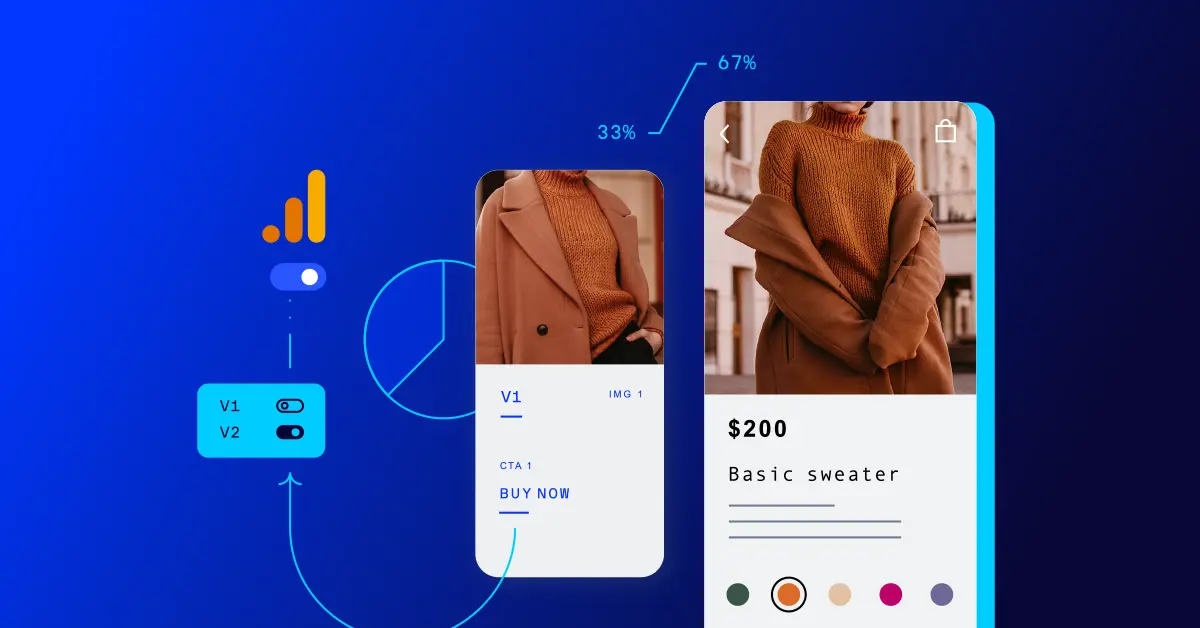Optimizely + Google Analytics 4: Top 3 reasons to explore the new integration
Together, Optimizely Web Experimentation + Google Analytics 4, offer the leading solution for testing, analyzing, and optimizing traffic across your websites and applications.

Anthony Aiosa

Editors note: Google Optimize has now officially sunset! But there's still time to claim your Optimizely migration discount
The news is out: Google Optimize, a tool that enables you to run A/B tests, multivariate tests, and personalization experiments on your website, will soon be deprecated. And with the September 30th 2023 date fast approaching, teams are on the hunt for an alternative solution.
One of the key requirements brands should be considering is how well their new A/B testing platform can (and will) integrate with Google Analytics 4. In the absence of integration, web owners would have to manually track and analyze the results of their experiments... leading to wasted time, error potential, and data inconsistencies.
That’s why brands are turning to Optimizely for experimentation.
Not only is Optimizely a Google partner of choice, but our Web Experimentation platform is a category leader and one of the most powerful A/B testing tools on the market, allowing businesses to run experiments and optimize their website content and user experience.
And now, we’re excited to announce we’re deepening our partnership and introducing a new integration between Optimizely Web Experimentation and Google Analytics 4.
Together, the two best-in-class tools offer businesses even deeper insights into how their website visitors interact with their site, leading to even more impactful experimentation and optimization.
Here are the top 3 features (and corresponding benefits) of integrating Optimizely Web Experimentation with Google Analytics 4.
1. Easy Authentication. Connect your Optimizely Web Experimentation and Google Analytics 4 instances with an out-of-the-box integration that allows you to send visitor events directly to GA4. Together, the two tools allow website owners to easily track and analyze their experiments in one place.

2. Report Generation. Connect your Optimizely Web Experimentation project to the GA4 property you want to associate it with. Users in Optimizely can send specific (or all) variations within an experiment to GA4 as an audience using a unique ID that surfaces the data associated with each user in the variant. You can then quickly and easily create reports on the various audiences to compare/contrast visitor actions from the different variations.

3. Audience Targeting. Optimizely's integration with Google Analytics 4 also allows businesses to create audience segments (based on specific user behaviors and demographics, such as age, gender, location, and more) from directly within GA4, and send it directly to Optimizely Web Experimentation. This allows teams to scale experimentation velocity by running more targeted and impactful experiments and personalization campaigns based on Google Audiences, reducing the need to recreate segments while unlocking new targeting capabilities.

So... if you’re looking for your Google Optimize alternative — whether Optimizely’s category-leading tool or otherwise — just remember the importance of having a first-class integration into GA4.
With the proper solution in place, teams can benefit from advanced experiment tracking and reporting, audience targeting, personalized content delivery, experiment prioritization, and improved data accuracy and tracking — all in pursuit of optimized web experiences that lead to high conversions, more revenue, and faster growth.
P.S. If you’re a Google Optimize customer, take advantage of Optimizely’s special offer today.
